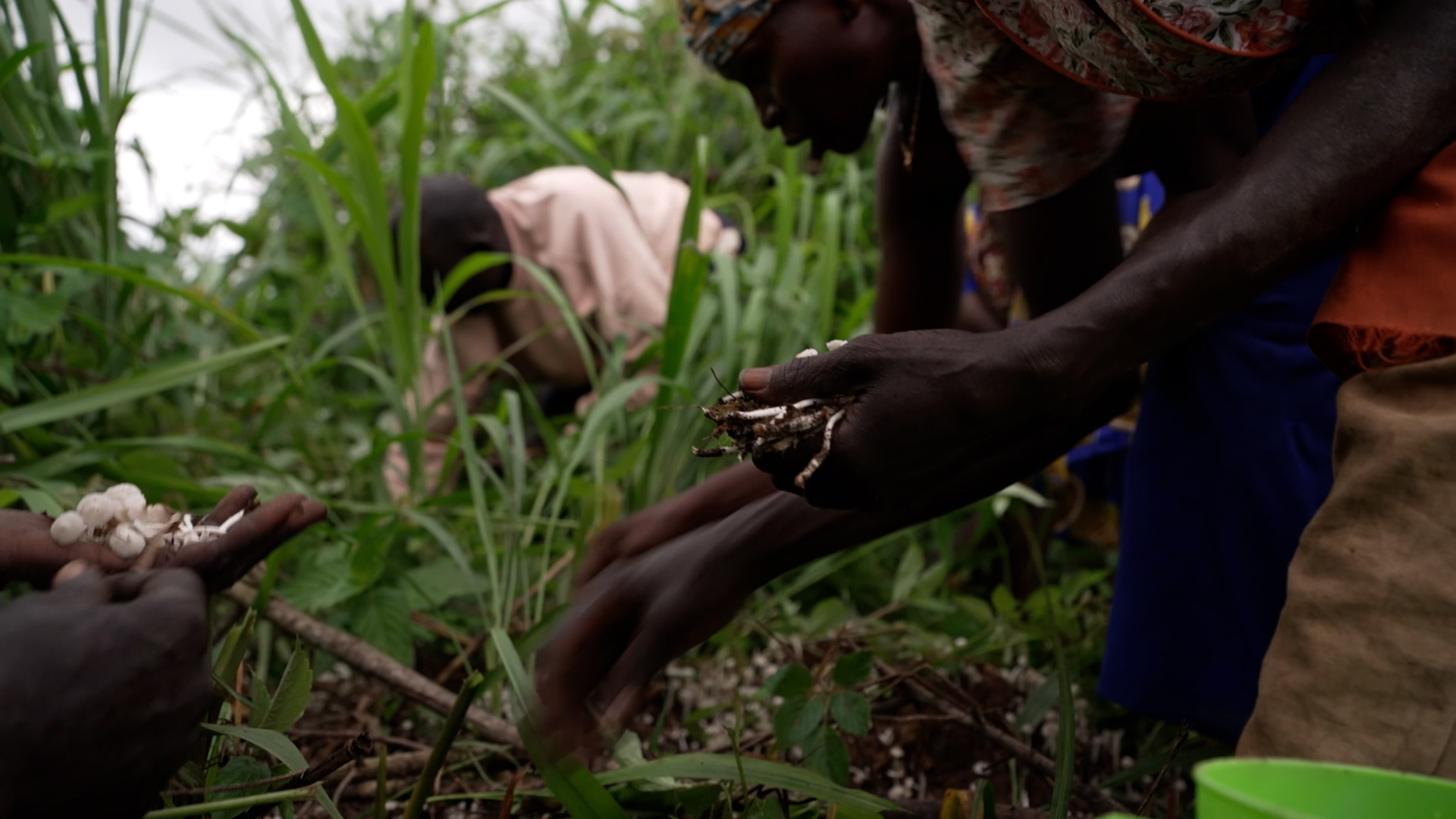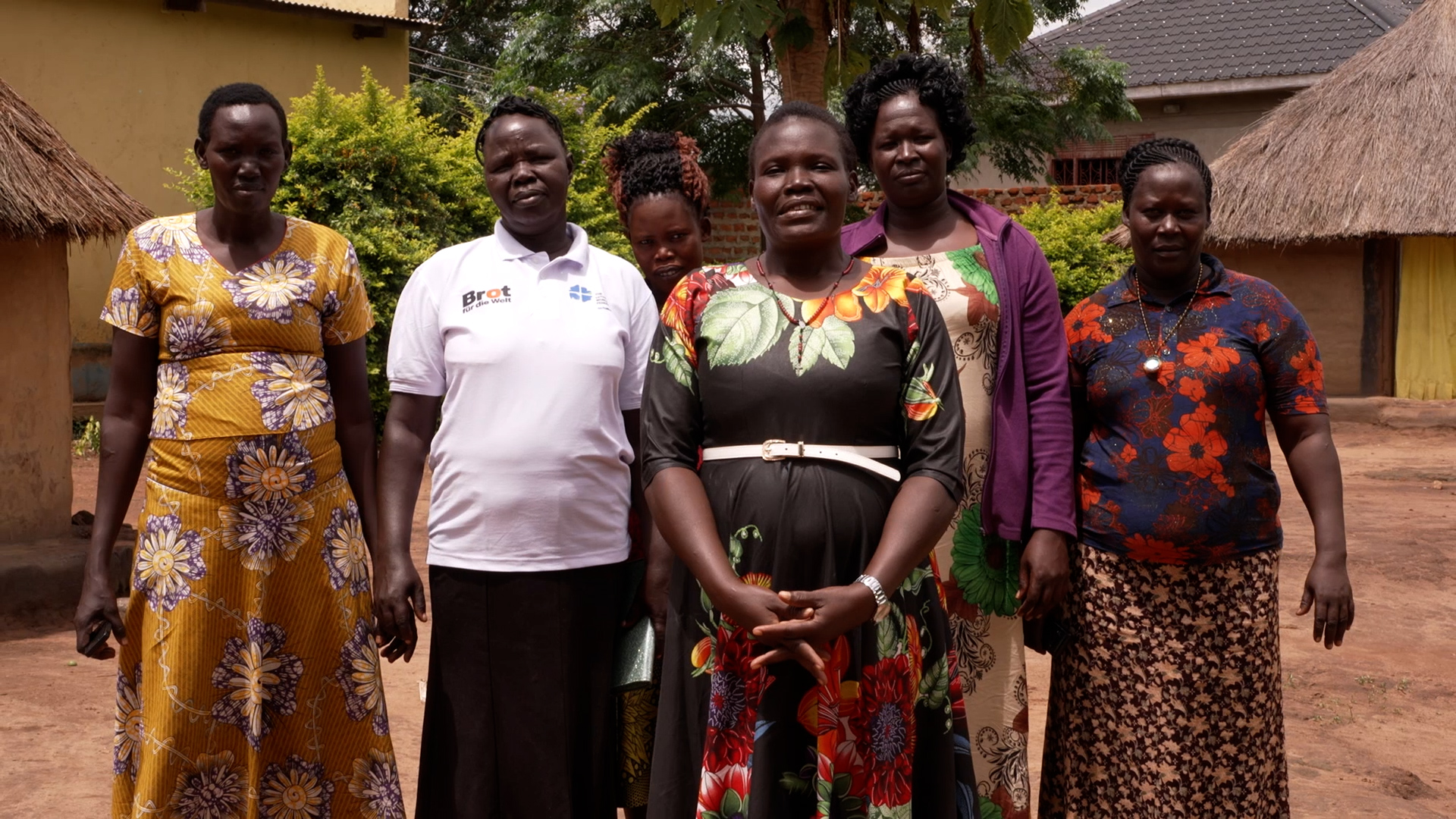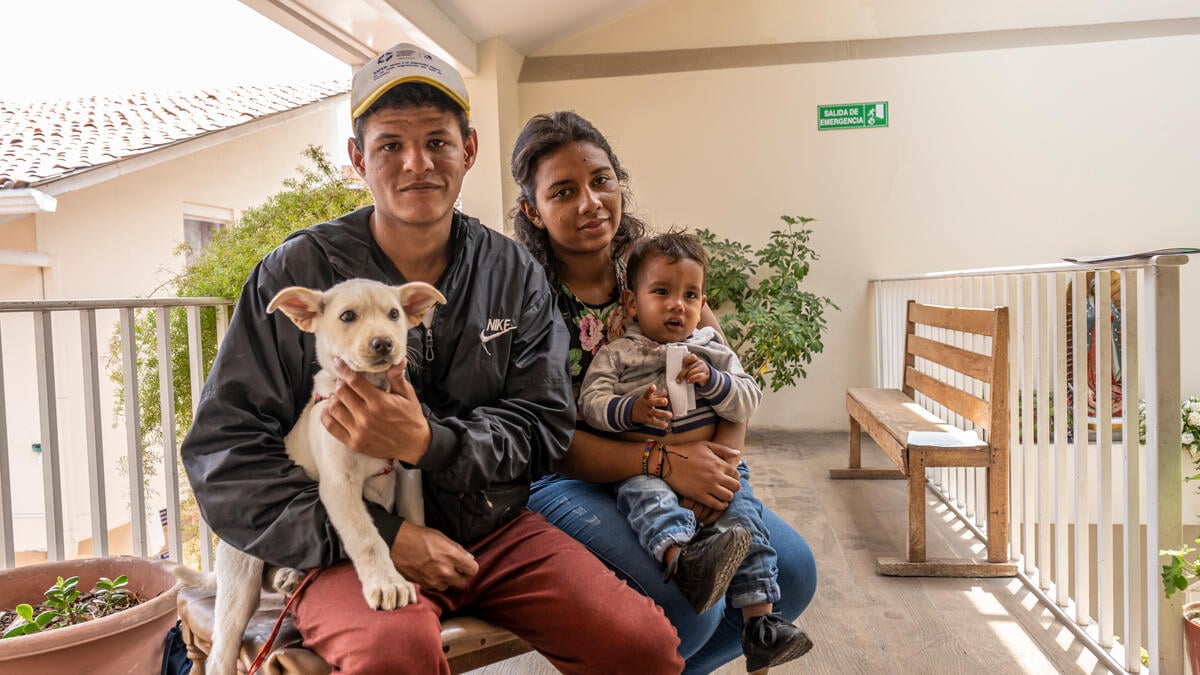Returning teachers aim to put Liberia back on learning curve
Returning teachers aim to put Liberia back on learning curve

MONROVIA, Liberia, March 26 (UNHCR) - A first group of displaced Liberian teachers have gone home with UNHCR assistance under plans to resume basic services and restore normalcy for tens of thousands of returnees in post-conflict Liberia.
On Friday morning, the group of 47 teachers - together with about 100 family members - boarded three UNHCR trucks in the Liberian capital of Monrovia and left for Zwedru in Grand Gedeh county, eastern Liberia. They had fled their homes and jobs at Zwedru's Multilateral High School at the height of the conflict last year, and are returning now as part of efforts by the Ministry of Education to kick-start basic services like education in areas of return.
"The opening of schools as part of the government's priority is a symbolic first step towards nationwide, coordinated efforts for return and reintegration," said Moses Okello, UNHCR Representative in Liberia.
While UNHCR has not officially started repatriating Liberian refugees and internally displaced people, many Liberians have been streaming back from neighbouring Sierra Leone and Guinea on their own in the wake of the 14-year civil war. They started returning as early as the middle of last year, but the pace of return has greatly increased since December, following the departure of President Charles Taylor and the deployment of troops under the UN Mission in Liberia (UNMIL).
On Tuesday alone, more than 800 Liberian refugees crossed back from Sierra Leone to Bo Waterside in north-western Liberia. They were met by UNHCR trucks that transported them to Monrovia as their home areas are still deemed unsafe for return.

In all, more than 5,000 recent returnees are now hosted in a new waystation at Perrytown and camps for internally displaced persons (IDPs) around the capital. Most of them have been given land and materials to build their own shelters, while 60 shelters have been set aside for vulnerable cases.
These returnees receive the same assistance as internally displaced Liberians, namely shelter, domestic items and access to basic services like health care, water and sanitation facilities.
UNHCR continues to monitor spontaneous returns in other parts of the country through a network of partners. There are rough estimates of more than 10,000 returnees in Grand Cape Mount county (near the border with Sierra Leone), 11,500 in Bong county (near the border with Guinea), and a mixed population of some 35,000 returnees and IDPs in Lofa county.
The International Committee of the Red Cross (ICRC) has distributed food, agricultural tools and seeds, and helped restore basic services in Lofa county, while some UNHCR partners have handed out domestic items and agricultural tools in Zwedru, Saclepea (Nimba county) and Harper (Mariland county).
The UN refugee agency is working to resume its presence in the field, with regular visits to these areas, as well as to Gbarnga (Bong county) and Bopolu (Lofa county). It is renovating offices and building transit centres for returnees, and working closely with partners like ICRC and the Norwegian Refugee Council.
More refugees are expected to return to Liberia in the coming months and in the run-up to the presidential elections in 2005. While these returns reflect a growing confidence in the peace process in Liberia, UNHCR is concerned that many people are coming back to a situation of continued displacement as prevailing insecurity prevents them from returning to their areas of origin.
Eventually, the refugee agency plans to repatriate 320,000 Liberian refugees in the region and 300,000 camp-based IDPs, but this can only happen with the full deployment of UNMIL troops and improved security and access in areas of return.
To help the returnees settle back in their communities, UNHCR and its partners will distribute food aid, relief items, shelter materials and farming tools. They will also provide water and sanitation facilities, and rehabilitate roads, schools and clinics in areas of return.
To date, the refugee agency has received only $2.6 million out of the $39 million it needs for its operations in Liberia this year.









